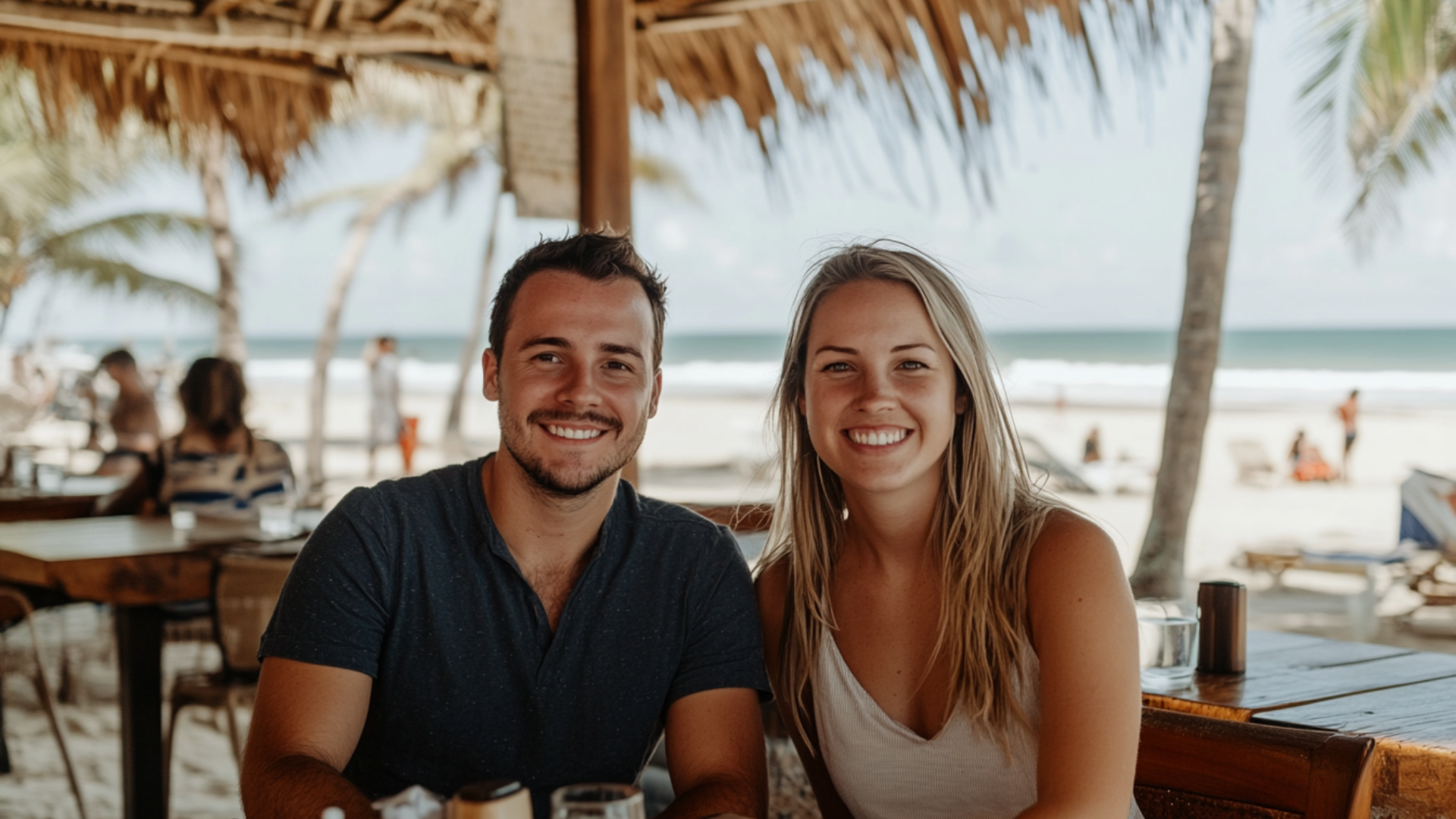How Does the Brazilian Real Estate Market React to Currency Fluctuations?
Emily and James, a couple from London, sat at a beachside café in Fortaleza, reminiscing about their first meeting with a local agent at Camila Saunier International Realty. They felt thrilled by the vibrant lifestyle and the real promise of the Brazilian real estate market. Although they had previously heard stories about Brazil real estate opportunities, they never realized how currency shifts could either heighten or diminish their purchasing power. In their conversations, they also considered the “human element” of buying property in Brazil, from forging friendships with neighbors to navigating local traditions.

Whether you live in Rio de Janeiro or Brasília, you’ve probably encountered similar talks about the Brazil property market and the potential for long-term growth. The country’s sheer size, dynamic culture, and diverse urban hubs spark global interest. However, real estate transaction fees, real estate demand, and economic factors can heavily influence your final investment return. This guide offers a clear roadmap for anyone intrigued by the Brazilian real estate market, shedding light on regional nuances, currency risk, and the value of partnering with the right real estate advisors. Let’s explore how you can make the most of these best real estate opportunities, particularly in cities like São Paulo, Rio de Janeiro, and beyond.
Understanding the Real Estate Landscape in Brazil
Brazil boasts one of the largest economies in Latin America, and its real estate landscape reflects this scale. Urban centers thrive with modern skyscrapers, suburban areas feature quiet family homes, and coastal hotspots promise beachfront condos. Amid this diversity, the Brazilian real estate market experiences shifts in supply, demand, and pricing based on global economic conditions and local developments.
Economic Fundamentals
The interplay of inflation rates, GDP growth, and employment trends shapes Brazil real estate. Periods of economic expansion often trigger a surge in real estate demand, driving up property values. Conversely, during downturns, prices might stagnate or even drop, presenting prime bargains for opportunistic buyers seeking the best real estate opportunities in emerging markets.
Currency Fluctuations
The Brazilian Real (BRL) can see significant changes in value relative to major currencies. When the Real depreciates, foreign investors may find excellent deals, whereas local property owners might feel increased pressure to adjust listing prices or revisit financing options.
Regional Diversity
No two cities in Brazil share the exact same trajectory. São Paulo real estate exemplifies a bustling corporate environment, where commercial towers and luxury apartments line the skyline. Coastal areas, like Fortaleza, attract holiday-home buyers aiming for leisure and potential short-term rental profits.
Understanding real estate transaction fees also helps clarify the real cost of purchasing property. These fees might include notary expenses, registration charges, and taxes that could add a notable percentage to the sale price. Always account for such fees to avoid surprises during closing. Working with seasoned real estate advisors, like attorneys at Oliveira Lawyers and agents at Camila Saunier International Realty, allows you to navigate these technicalities more confidently. They will guide you through paperwork, property evaluations, and legalities so you feel secure about your investment decision.
Currency Fluctuations and Their Impact on the Brazil Property Market
Currency plays a crucial role in shaping the Brazil property market, influencing everything from the affordability of a home to the overall investment outcome. When the Brazilian Real weakens against other currencies like the US Dollar or Euro, foreign buyers can secure real estate at a lower cost relative to their home currency. Conversely, when the Real strengthens, profits can soar if you decide to sell and convert earnings into dollars or euros.
How Currency Impacts the Best Real Estate Opportunities
Purchasing Power
Investors operating in a stronger currency typically enjoy heightened purchasing power in Brazil. They can afford larger or more centrally located properties without necessarily increasing their overall budget. This phenomenon often leads to a spike in real estate demand from overseas buyers during times of currency depreciation.
Risk of Loss
Currency fluctuations can cause your returns to shrink if the local currency weakens further after your purchase. For example, if you plan on selling in three years and repatriating your funds, changes in the exchange rate might reduce the final profit in your home currency.
Financing Implications
If you finance your Brazilian property with local banks, monthly mortgage payments remain fixed in BRL. However, if you earn income in a foreign currency, shifts in the exchange rate can make these payments more or less expensive each month.
Market Sentiment
Volatile exchange rates can generate caution among investors who prefer stable environments. On the other hand, risk-tolerant investors see currency swings as windows of opportunity for acquiring assets at lower prices.
Strategies to Manage Exchange Rate Impact
Forward Contracts
By locking in exchange rates for future dates, you protect your investment from sudden fluctuations. This approach makes budgeting more predictable, especially if you plan to close a deal six months down the line.
Local Bank Accounts
Holding funds in both your home currency and Brazilian Reais can help you choose the most favorable times to convert. This multi-currency approach offers flexibility during volatile periods.
Diversification
Allocate your capital across various cities or even multiple countries. While the Brazilian real estate market may be your main focus, spreading your risk to other locales helps balance market swings.
Understanding these currency considerations helps you approach buying property in Brazil with a strategic mindset, ultimately maximizing your prospects for a successful investment journey.
Key Locations for the Best Real Estate Opportunities in Brazil
Brazil offers a diverse array of locations, each with its own real estate rhythms. Whether you’re looking for a lucrative commercial property in a bustling metropolis or a beachfront condo for family getaways, you’ll discover unique perks in different parts of the country.
São Paulo Real Estate
São Paulo real estate is synonymous with corporate centers, luxury high-rises, and a thriving economic atmosphere. The city is home to multinational corporations, high-end shopping districts, and cultural landmarks. Property values in São Paulo can command premium prices, but rental yields also tend to run high, thanks to strong real estate demand from both local and international tenants. If you seek stability and a business-driven environment, São Paulo ranks among the best real estate opportunities in Brazil.
Rio de Janeiro
Famed for its beaches and Carnival celebrations, Rio de Janeiro offers holiday-home seekers and expats a vibrant urban experience. Neighborhoods like Copacabana and Ipanema capture significant tourist interest, leading to strong short-term rental returns. Buyers should remain cautious about varying regulations on short-term rentals to avoid legal hurdles. The city’s allure and consistent tourism inflow translate into long-term growth potential.
Brasília
As the capital of Brazil, Brasília hosts numerous government agencies, foreign embassies, and international organizations. Commercial buildings and diplomatic housing enjoy steady interest, while residential areas cater to a professional demographic. If you’re exploring the Brazil property market for a balanced rental strategy, Brasília’s consistent activity could serve you well.
Northeastern Gems: Fortaleza and Salvador
Cities like Fortaleza and Salvador charm visitors with stunning coastlines and rich cultural vibes. These destinations experience high volumes of domestic and international tourists, making them prime spots for short-term holiday rentals. Residential neighborhoods also see regular demand from locals who appreciate the moderate living costs and laid-back lifestyle. Investment here could yield robust returns if you maintain the property and market it effectively.
Coastal vs. Inland Choices
Beachfront regions often command higher prices, but they also attract seasonal tourists, presenting the possibility of lucrative short-term rentals. Inland cities, on the other hand, might offer more stable year-round demand. Your choice hinges on your investment strategy—do you prefer a consistent, long-term tenant or the possibility of higher yields during peak tourist seasons?
No matter which city intrigues you most, conducting thorough research or seeking the help of real estate advisors remains essential. Each region’s laws, market trends, and property features require careful consideration to ensure you locate the best real estate opportunities for your goals.
The Legal Foundations of Buying Property in Brazil
Buying property in Brazil involves more than just choosing the right house or apartment; you must also navigate a specific legal framework. Brazil welcomes foreign investors interested in the Brazil property market, but you’ll need to abide by rules designed to protect both buyer and seller. Below are the critical steps and considerations.
CPF Number: Your First Essential Step
Non-residents must obtain a CPF (Cadastro de Pessoas Físicas), which serves as a tax identification number in Brazil. Without this number, you can’t open local bank accounts or complete property transactions. Applying at Brazilian consulates abroad or in Brazil is typically straightforward, requiring basic identification documents.
Engaging Real Estate Advisors
Working with well-informed real estate advisors, such as Camila Saunier International Realty and Oliveira Lawyers, provides clarity on each legal step. Agents streamline property searches and handle negotiations, while attorneys review contracts and confirm that no outstanding liens or legal claims exist against the asset. This collaboration helps protect you from scams or sudden surprises.
Understanding Real Estate Transaction Fees
Real estate transaction fees can significantly influence the total cost of your purchase. These fees usually include:
- Notary and Registration Costs: You’ll pay for the deed to be notarized and for your ownership to be officially registered at a local notary office, known as a cartório.
- Property Transfer Tax (ITBI): This municipal tax generally amounts to a percentage of the property’s declared value.
- Legal and Agency Fees: Attorneys and real estate agents may charge a set fee or a percentage of the sale price for their services.
Because costs vary by city and municipality, always verify the exact percentages or amounts. Factoring in these expenditures early ensures you don’t underestimate your total financial outlay.
Due Diligence and Contracts
Before finalizing any purchase, conduct thorough due diligence:
- Property Documents: Verify ownership certificates, building permits, and any existing debts tied to the property.
- Inspection: Check for structural integrity and compliance with local building codes.
- Contract Review: Work with lawyers to finalize the sale agreement, ensuring it covers contingencies like currency fluctuations, payment terms, and deadlines for transferring ownership.
Rural and Special Restrictions
Foreigners generally face few obstacles when buying urban property. Rural land or areas near national borders, however, may impose restrictions or require special government approvals. This detail underscores the importance of using professional legal services to clarify your eligibility.
Closing and Beyond
Once you pay the final balance and sign the official documents, you’ll register the sale at the notary office to confirm your ownership. Keep a record of all relevant paperwork, from the initial offer letter to the final deed, in both digital and physical forms. After closing, you’re free to occupy, rent, or renovate your new property. If you plan to rent out your home, ensure you understand any local regulations regarding short-term leases or tenant rights.
This well-structured legal approach arms you with the knowledge and security you need to succeed in the Brazilian real estate market.
Comparing the Brazilian Market with Other Emerging Markets
When sizing up the Brazil real estate sector, it’s natural to compare it with other emerging markets like Mexico, Colombia, or even countries in Asia. Each region presents its own blend of growth potential, legal frameworks, and socio-political climates.
Brazil’s Distinct Advantages
- Market Depth: Brazil stands as one of the largest economies in Latin America, giving it considerable “depth.” Even in times of global economic strain, the presence of an enormous domestic consumer base frequently stabilizes the Brazil property market.
- Diverse Real Estate Landscape: Coastal tourism, agricultural land, corporate hubs, and cultural centers exist within one country, creating a broad range of best real estate opportunities for different investor profiles.
- Strong Local Demand: Brazilians culturally value homeownership, which cultivates robust demand even when foreign capital fluctuates. This can create resilience during global economic downturns.
Potential Drawbacks
- Currency Volatility: Emerging markets, including Brazil, often experience more intense currency fluctuations compared to developed nations. This volatility can heighten the risk for foreign investors, although it can also yield major upsides if timed correctly.
- Complex Bureaucracy: Regulations differ from city to city, and processes can involve multiple administrative layers. Skilled real estate advisors help you navigate these complexities.
Considering Other Markets
Mexico, for instance, shares cultural and geographical ties with North America, which can simplify foreign investment for those from the U.S. Meanwhile, Colombia has shown robust growth in urban centers like Bogotá and Medellín but remains sensitive to political shifts. Southeast Asian nations like Vietnam or Thailand may present lower entry costs, but each region’s local laws on foreign ownership vary widely.
Balancing a Global Portfolio
Diversification benefits investors seeking a balanced approach to risk and return. By spreading capital across different regions, you can offset localized downturns. While you might focus your main efforts on Brazil, you could also consider partial allocations to other emerging markets. This tactic softens the blow of potential currency dips or economic reforms in any single nation.
In the end, the Brazilian real estate market maintains a unique allure thanks to its sheer size, cultural attractions, and proven ability to recover from economic challenges. If you approach your purchase with diligence, expert guidance, and an awareness of global market contexts, you stand a solid chance of reaping both financial and lifestyle rewards.
Maximizing Returns and Mitigating Risks
Securing a favorable deal in the Brazilian real estate market means more than picking a prime location. You must also factor in maintenance costs, potential rental income, and the overall direction of the local economy. Here are proven ways to make the most of your real estate investment:
Renovations and Upgrades
Properties that need a bit of love can often be purchased below market value. Once you renovate, you can raise the rental rate or resale price. This tactic works especially well in larger cities, like São Paulo, where renters seek modern amenities. Even small fixes, such as updating kitchens or adding eco-friendly features, can attract tenants willing to pay a premium.
Short-Term Rentals
Platforms like Airbnb flourish in tourist hotspots such as Rio de Janeiro or Salvador. Short-term lets can generate higher returns than traditional long-term leases, but they demand frequent management. Regulations differ among cities, so confirm local rental rules before hosting travelers.
Commercial Spaces
Office buildings and retail outlets often cater to a consistent, business-focused tenant base. This stability can deliver reliable rental income. If you invest in areas undergoing economic growth, you’ll probably witness rising demand for corporate or commercial real estate.
Timing the Market
Keep a close eye on economic indicators, local housing trends, and currency dynamics. Buying during market dips or when the Brazilian Real weakens against your home currency can lower your purchase cost. Selling during peak market conditions amplifies your profits.
Long-Term Vision
Brazil’s real estate journey can be cyclical. Short-term fluctuations do happen, but property values in popular locations often recover and appreciate over time. Many investors adopt a hold strategy, collecting rental income and waiting for the right moment to sell.
Legal Safeguards
Enforce your rights with properly drafted contracts. If you rent out your home, ensure your lease agreements align with Brazilian law. Consult your real estate advisors whenever significant changes—like raising rent—become necessary.
When you combine astute location choices, mindful currency planning, and strong legal backing, you set the stage for profitable, low-stress investments in the Brazil real estate arena. The more prepared and informed you are, the better positioned you’ll be to identify and seize the best real estate opportunities across the country.
A Comparison Table: Currency Fluctuations in Brazil vs. Other Emerging Markets
| Factor | Brazil | Mexico | Colombia |
|---|---|---|---|
| Currency Volatility | Moderate to High (BRL) | Moderate (MXN) | Moderate to High (COP) |
| Economic Scale | Largest in LATAM | Second-largest in LATAM | Mid-range in LATAM |
| Real Estate Demand | Strong domestic + foreign | Strong local + some foreign | Growing interest |
| Bureaucracy Level | Complex, city-dependent | Moderately complex | Can be region-specific |
| Potential ROI | High (location-dependent) | Steady in big cities | Promising in urban hubs |
Conclusion
Investing in the Brazilian real estate market presents an exciting blend of risk, reward, cultural immersion, and economic advantage. From coastal retreats to bustling metropolises, best real estate opportunities abound for those equipped with the right information. Currency considerations, such as timing and hedging, can dramatically affect your purchase price and eventual returns. Meanwhile, real estate transaction fees and local regulations underscore the importance of leaning on reliable real estate advisors like Camila Saunier International Realty and legal experts at Oliveira Lawyers.
Remember that buying property in Brazil involves more than financial calculations—it also welcomes you into vibrant communities with deep historical roots and modern amenities. Whether you plan to buy a single apartment in the heart of São Paulo real estate or diversify your portfolio across various cities, your success hinges on thorough research and a willingness to adapt to local nuances.
What’s your biggest challenge when investing in Brazilian real estate? Share your thoughts with us!
If you’re ready for more details or personal advice tailored to your situation, reach out to our team or download our specialized guides.
Frequently Asked Questions (FAQs)
1. How do I start buying property in Brazil as a foreigner?
Answer: Begin by getting a CPF number for tax identification. Then, consult trusted real estate advisors such as Camila Saunier International Realty for property scouting and Oliveira Lawyers for legal support. These steps smooth out the process and prevent costly errors.
2. What should I know about real estate transaction fees in Brazil?
Answer: Real estate transaction fees include notary, registration, and transfer taxes, often tied to the property’s declared value. Always factor these costs into your budget before finalizing a purchase to avoid unpleasant surprises.
3. Are there restrictions on foreign ownership in the Brazil property market?
Answer: Urban areas generally allow full ownership, but rural or protected regions might require additional approvals. Always verify zoning and ownership rules with local authorities or experienced legal firms.
4. Why is currency so crucial in the Brazilian real estate market?
Answer: Currency fluctuations affect the affordability of Brazil real estate and the value of your returns when converting funds back. Investors gain an advantage when the Brazilian Real is weak but may face losses if it weakens further after purchase.
5. What’s the difference between São Paulo real estate and other regions?
Answer: São Paulo real estate focuses on corporate growth, international business, and large-scale developments, often yielding premium returns. Coastal regions, like Rio, Salvador, or Fortaleza, lean more toward tourism and short-term rentals.
6. How can I hedge against unfavorable exchange rates when buying property?
Answer: Some buyers use forward contracts to lock in a stable exchange rate. Others open dual-currency bank accounts or spread their investments across multiple global markets to balance risk.
7. Is Brazil a better market than Mexico or Colombia for real estate?
Answer: Each offers its own advantages. Brazil’s massive economy and diverse real estate landscape often attract investors seeking both large urban hubs and scenic coastal regions. Mexico and Colombia also have potential but differ in market size and regulatory climates.
8. Are there unique real estate opportunities in Brazil for retirees?
Answer: Yes, especially in cities known for their favorable climates and lower living costs, like coastal towns in the Northeast. Retirees appreciate the relaxed lifestyle and affordable healthcare.
9. What can I expect in terms of rental yields in Brazil?
Answer: Rental yields vary by location. Prime commercial or high-demand residential areas can yield solid returns, particularly if you capitalize on tourism or corporate housing needs.
10. Can I manage a property remotely if I don’t live in Brazil?
Answer: Absolutely. Many investors hire property management companies or local agents to handle tenant relations, maintenance, and rent collection, ensuring a smooth operation from afar.
11. What are common legal pitfalls when buying property in Brazil?
Answer: Overlooking due diligence on property liens, unclear inheritance or ownership histories, and ignoring local regulations can lead to disputes or financial losses. Professional legal guidance is essential.
12. How do I finance my Brazilian real estate purchase if I’m a foreign national?
Answer: Some local banks offer mortgages to foreigners with solid credit histories and proof of income. Alternatively, you could use financing from your home country, especially if interest rates in Brazil seem comparatively high.





